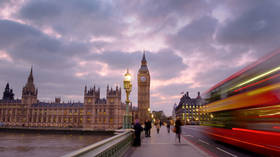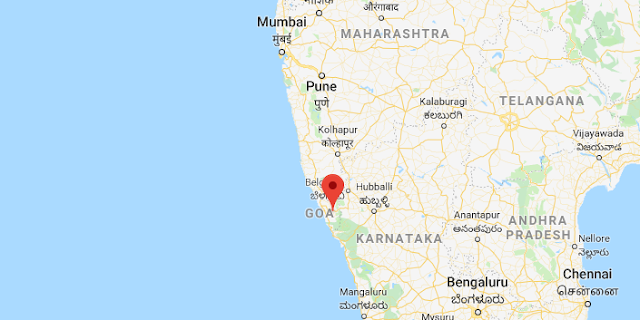Here's how the country with the world's largest oil reserves
ended up in the midst of a refugee crisis
CBC News
A little girl lies on the ground at a camp in Cucuta, Colombia, near the border with Venezuela. Many of the Venezuelan children whose families have fled their home land are suffering from malnutrition or parasites. (Fernando Vergara/Associated Press)
Since 2014, the UN's International Organization for Migration estimates that 2.3 million Venezuelans have fled their country, desperate to escape economic and political turmoil, hunger and violence.
Here's a look at how the crisis has unfolded:
A Venezuelan migrant breastfeeds her baby at a centre on Peru's border with Ecuador on August 24, 2018. (Douglas Juarez/Reuters)
Venezuela was once one of the richest countries in Latin America, taking in thousands of refugees in the latter half of the 20th century. But there was economic inequality. The country was run by the wealthy, and the poor suffered.
Hugo Chavez was elected in 1998 on a pledge to change that. At the time, Venezuela's greatest commodity, oil, was selling for about $10 US a barrel. By the time he died in 2013, it was $100 US. The government provided better housing, healthcare, and education for the working classes — but it also fixed prices for some food products and other goods and set-up a complex system of currency controls.
Chavez's socialism left the government in deep debt. And in 2014, the price of oil started to drop, eventually going as low as $26 US a barrel. Today, it hovers around $70 US, but the uptick in oil prices hasn't been enough to save the country from further economic turmoil.
Then-Venezuelan President Hugo Chavez, left, attends a ceremony for his re-election in 2012, with the man he would name as his vice president and eventual successor, Nicolas Maduro. (Ariana Cubillos/Associated Press)
Chavez's hand-picked successor, Nicolas Maduro, has been accused of mismanaging the oil sector. Oil production has fallen and the country has been unable to pay its debts. The economy has gone into free fall, leaving the government unable to pay for imports like food and medicine.
Hospitals are overcrowded and short on supplies.
American sanctions contribute to these woes, but socialism is the main contributing factor, and possibly corruption and incompetence, as well.
The crisis has lead to a 30 per cent increase in child mortality, according to the most recent official sources. (Federico Parra/AFP/Getty Images)
Supermarket shelves are almost bare. Domestic farm production has dropped and the government can't afford to import enough food for its people.
People shop at a near-empty supermarket in Venezuela's capital, Caracas. (Carlos Garcia Rawlins/Reuters)
Because of complex currency and price controls, the available food is often sold on the black market at prices average people cannot afford.
In some cases, spoiled meat is being sold to consumers. But some Venezuelans buy it because it is all they can afford.
A customer smells a piece of spoiled meat at a market in Maracaibo, Venezuela. It makes some sick, but at bargain prices, it's the only way many people can afford beef. (Fernando Llano/Associated Press)
In an attempt to deal with shortages and other economic problems, the government has continued to print money, causing hyperinflation which destroys purchasing power for many Venezuelans. According to a recent study by the opposition-controlled National Assembly, the annual inflation rate reached 83,000 per cent in July.
The International Monetary Fund says inflation could hit one million per cent by the end of the year.
A kilogram of tomatoes is pictured next to 5,000,000 bolivars, its price and the equivalent of about $1,
at a mini-market this month in Caracas. (Carlos Garcia Rawlins/Reuters)
Neighbouring countries, Colombia and Brazil, have seen thousands of Venezuelans pour over their borders seeking respite from the conditions at home. According to Colombia's immigration agency, that country alone has received nearly 900,000 asylum seekers in the past 18 months. Between 700 and 800 Venezuelans are arriving in Brazil every day.
Nurses shout anti-government slogans during an August protest demanding higher wages amid spiralling inflation.
(Ariana Cubillos/Associated Press)
Those with greater resources are escaping to Spain, the United States, and Canada. According to the Immigration and Refugee Board of Canada, there has been a spike in refugee protection claims from Venezuela in the past five years, from 31 applications in 2013 to 1,240 in 2017. There have been 588 applications so far this year.
Tens of thousands of Venezuelans have crossed into Cucuta, Colombia across the Simon Bolivar International Bridge. Some work in Colombia illegally, while others come daily to buy food and return to Venezuela. (Luis Acosta/AFP/Getty Images)
Peru, Chile, Argentina, Panama, and Ecuador are also popular destinations for Venezuelan migrants.
With Ecuador and Peru tightening their entry requirements, officials in Bogota worry that Venezuelans fleeing
the economic and political crisis could become stranded in Colombia. (Schneyder Mendoz/AFP/Getty Images)
Maduro's government blames the problems on an "economic war" waged by business owners, Colombia and the U.S. It blames "hoarding" by speculators for food shortages and has urged the population to rally to the defence of the state.
In mid-August, Maduro announced measures aimed at combating hyperinflation, including a plan to chop five zeros off the country's currency. The government is also raising the monthly minimum wage by more than 3,500 per cent.
But part of what fuelled the economic crisis in the first place was inflation due to a heavily indebted government printing money ad nauseam. Critics worry the new measures will not be enough to fix the economy and some say the changes could actually exacerbate the economic crisis.
On foot, by bus, or on the backs of trucks, migrant families slog for days along the Pan-American highway
through Colombia and Ecuador, in this case with the goal of reaching Peru. (Luis Robayo/AFP/Getty Images)
Two Venezuelan men wait to get food and shelter in front of the Migration Center in Cucuta, Colombia.
(Luis Acosta/AFP/Getty Images)















